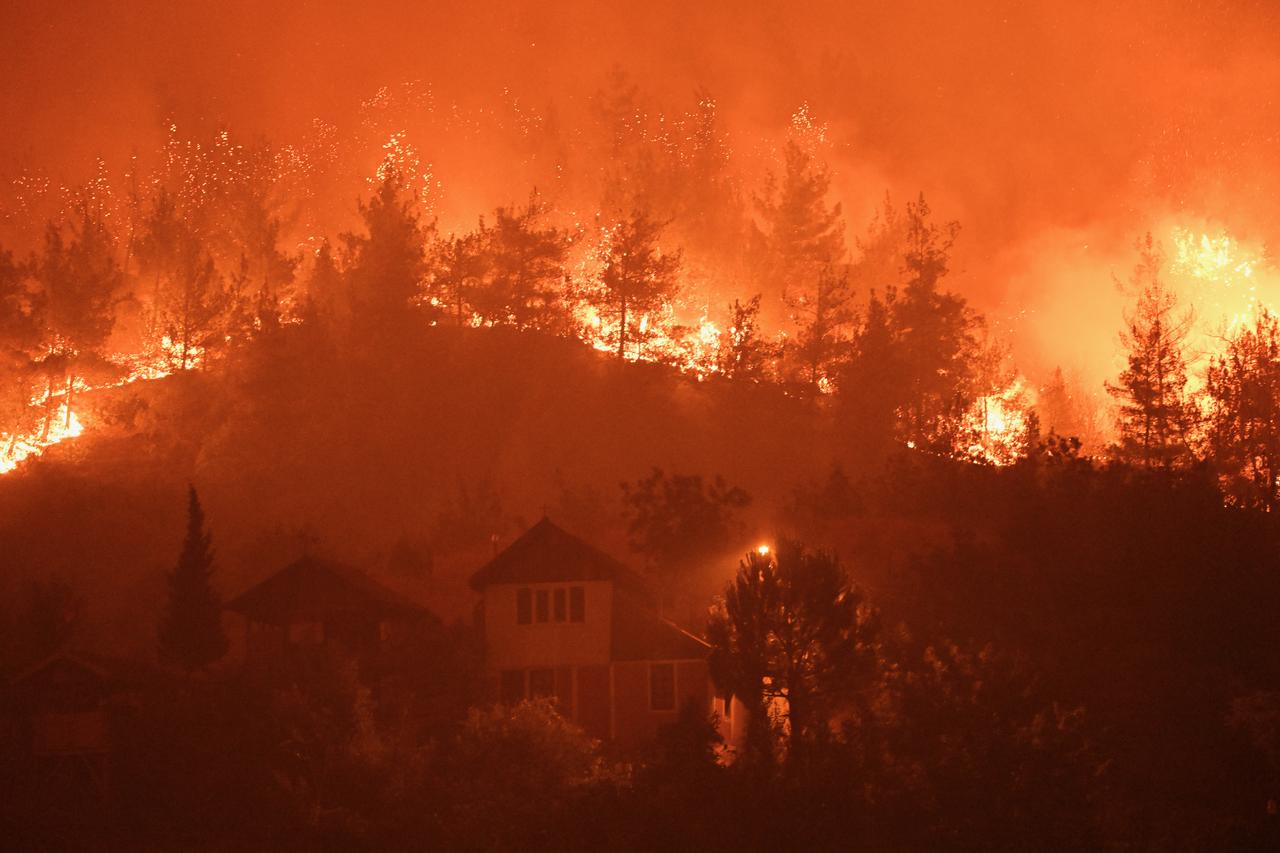
Türkiye is currently battling multiple major wildfires, with active blazes threatening residential areas in Bursa, Karabuk, and Kahramanmaras. At the same time, fires in neighboring Bulgaria and Greece continue to grow and are approaching the Turkish border. Over the past week, firefighting teams have worked around the clock to contain rapidly spreading fires, which are being fueled by strong winds and challenging terrain.
Authorities have successfully brought fires in Antalya, Usak, and Bingol under control, but four significant fire fronts remain active. More than 1,000 personnel and hundreds of firefighting vehicles have been deployed to affected regions. Aircraft, helicopters, and bulldozers are continuing to support operations. Meanwhile, authorities have launched an investigation into suspected arson, detaining seven individuals—three of whom have been formally arrested.
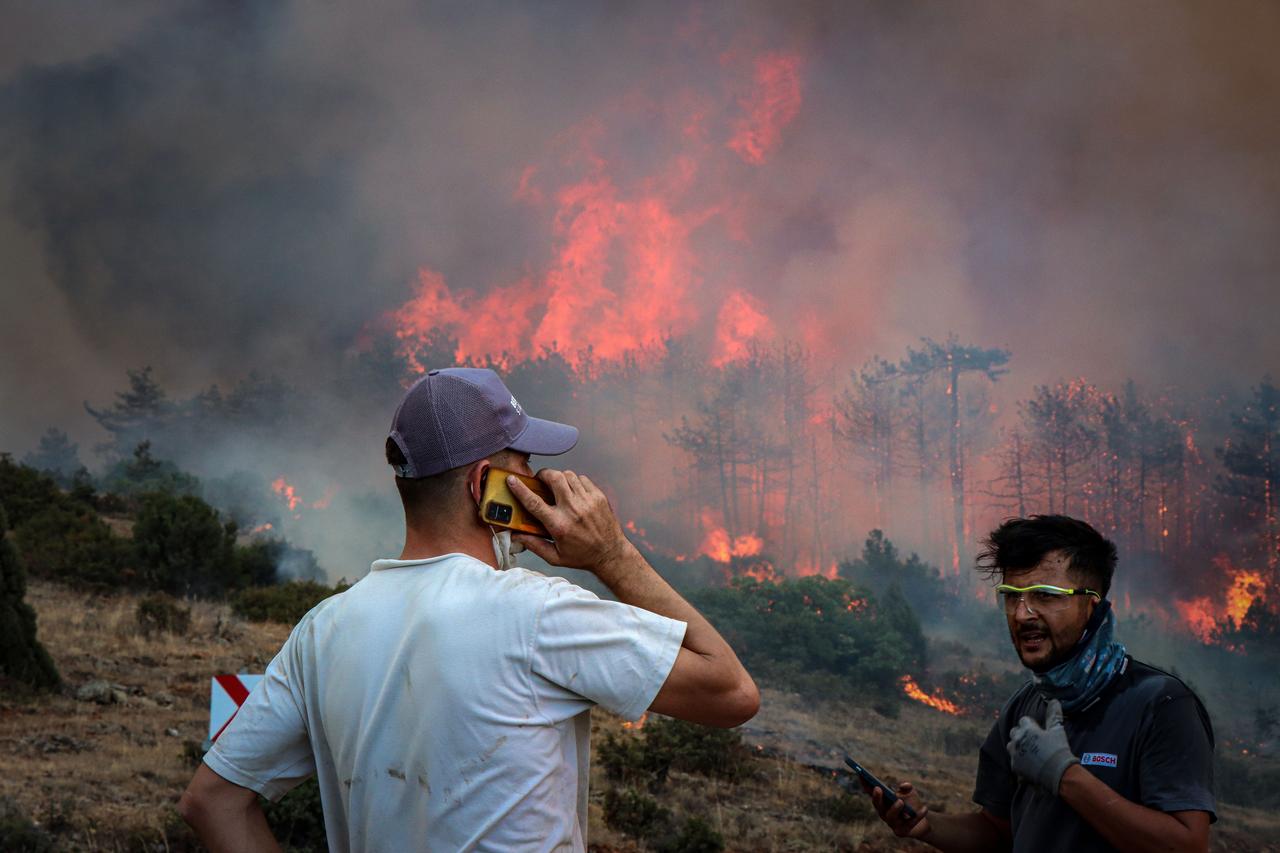
In Bursa province, wildfires broke out across multiple districts, including Orhaneli, Kestel, and Gursu. The rapidly moving flames prompted the evacuation of over 1,700 residents. A water tanker heading to the fire zone overturned, resulting in the deaths of three emergency personnel.
Interior Minister Ali Yerlikaya confirmed that one individual found with a can of gasoline near a fire site was taken into custody, raising suspicions of sabotage. Authorities briefly closed a section of the Ankara-bound highway to protect public safety, later reopening it as the fire showed signs of stabilizing.
Surveillance and suppression efforts continue in the province, where several fire zones are still considered high-risk.
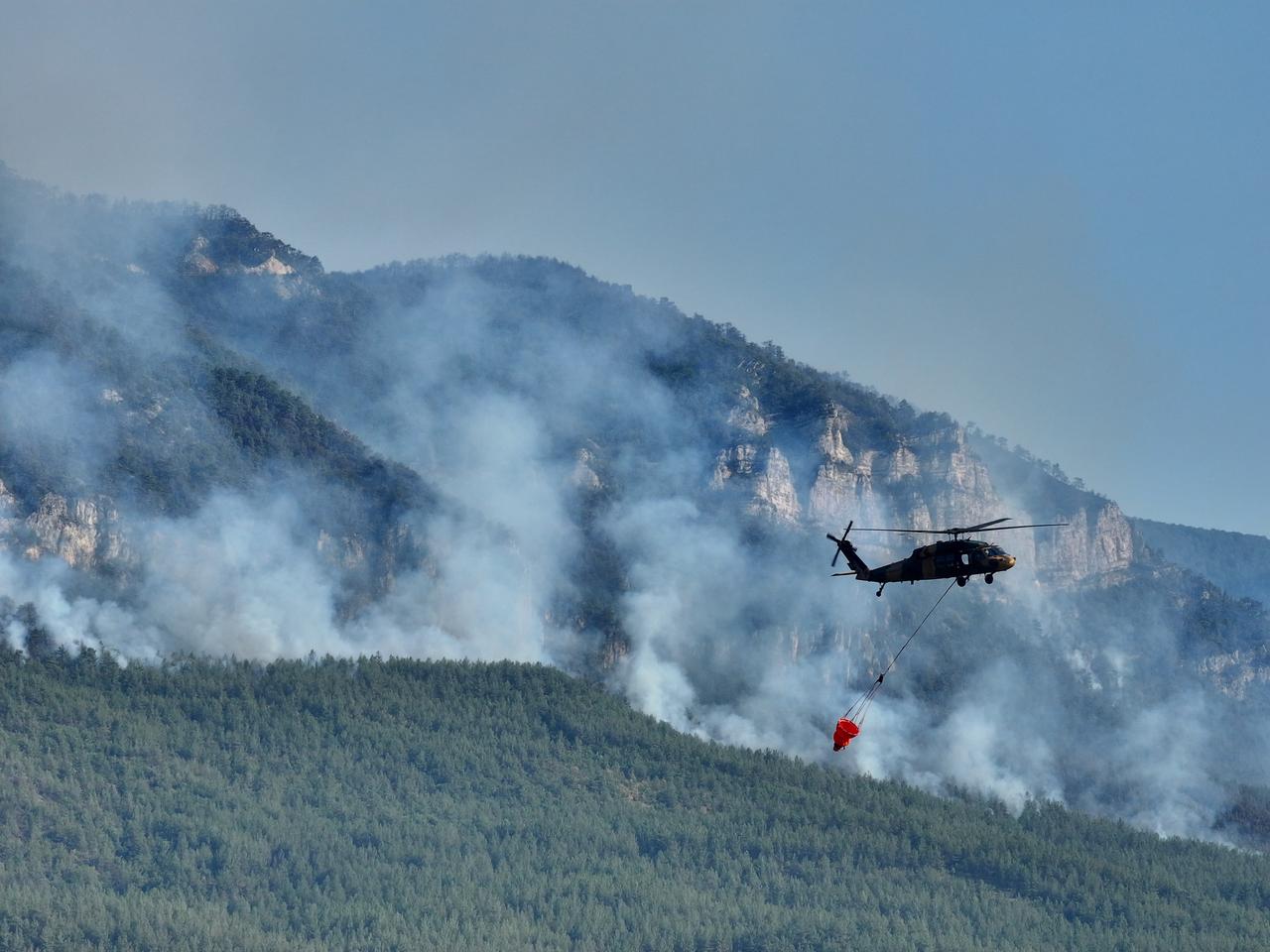
In Karabuk’s historic Safranbolu district, firefighting teams have been struggling for days to contain a forest fire that has already forced the evacuation of 19 villages. The blaze, fanned by shifting wind patterns, led to the temporary closure of the Karabuk-Ankara highway. Although it has since reopened, traffic is under close control.
Ground and aerial teams remain in the field as the fire threatens nearby residential areas, with efforts concentrated on holding the fireline.
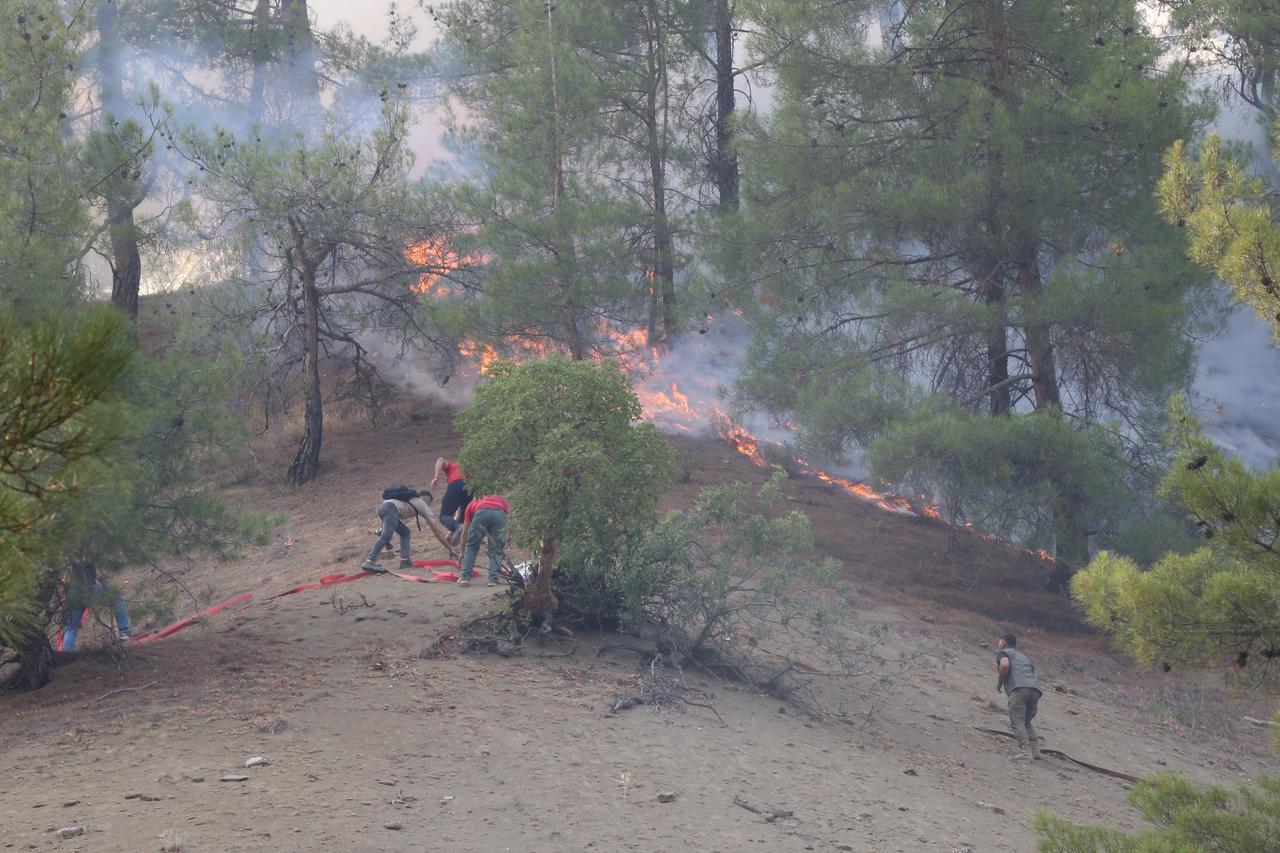
In the rural Camlibel district of Kahramanmaras, a wildfire destroyed several homes and forced the evacuation of at least 23 others. Emergency units responded with 38 water trucks and multiple bulldozers, while local fire brigades worked to stop the spread.
Though the cause of the fire is still unclear, four people received medical treatment for smoke inhalation, and approximately 130 residents were relocated to safe zones.
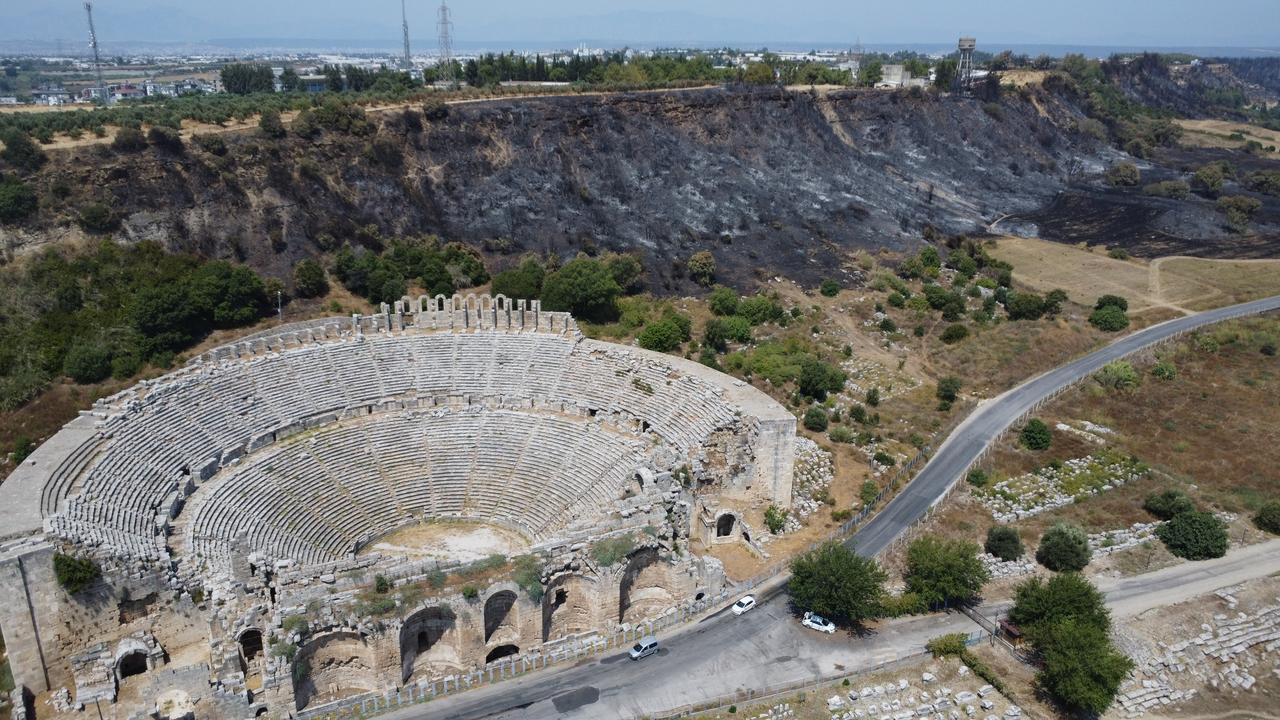
In Antalya’s Gazipasa district, four recent wildfires have all been brought under control. Cooling operations are ongoing to prevent reignition.
Likewise, a fast-spreading fire in Bingol’s Genc district has been extinguished following swift intervention.
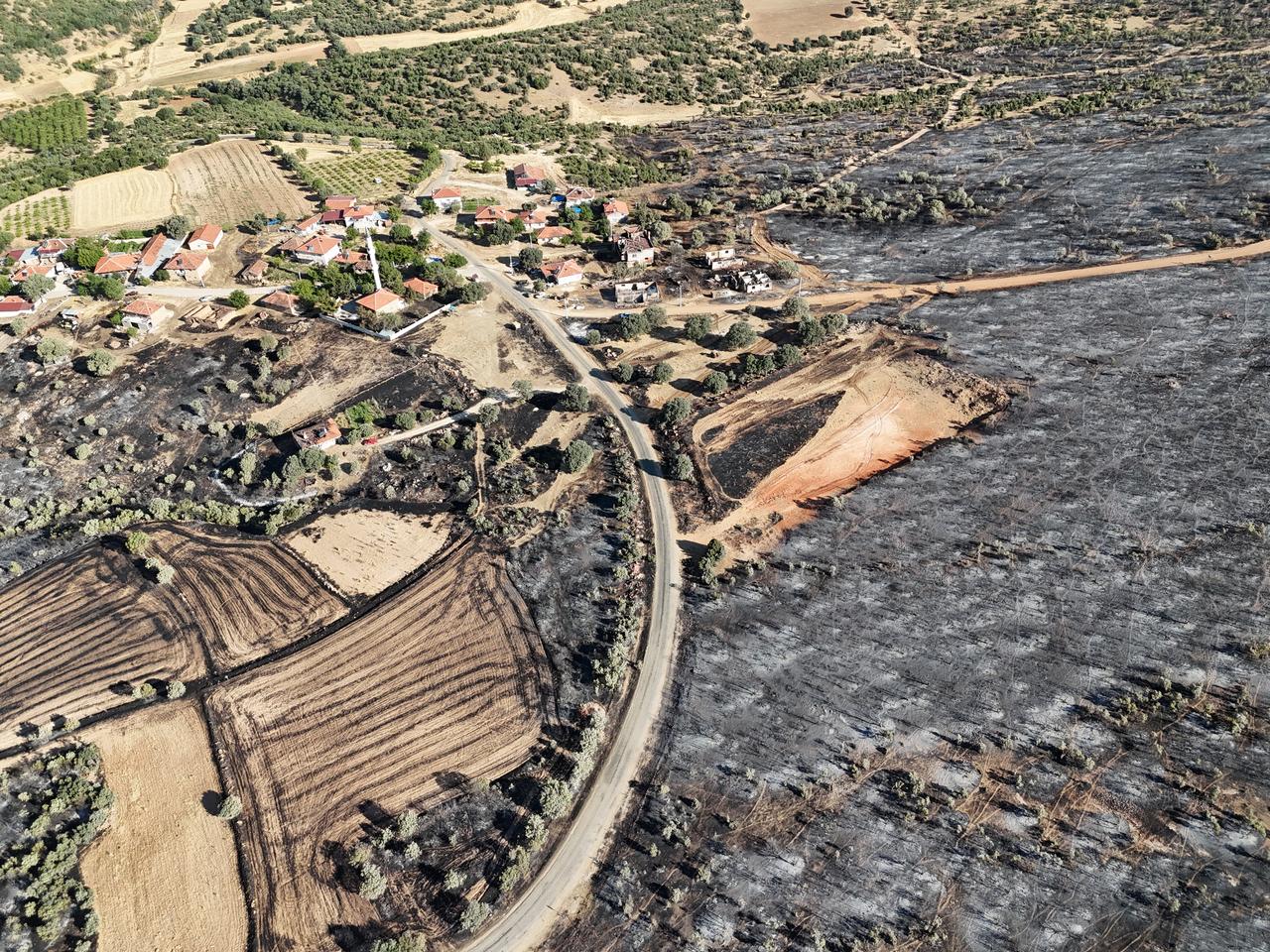
While many fires have been contained, rural areas of Usak province remain at risk.
Residents from several villages have been evacuated, and air and ground teams are actively working to suppress ongoing fires with helicopters and heavy machinery.
According to Minister Yerlikaya, seven individuals were detained between July 22 and 27 in connection with the wildfires. Three were remanded in custody, while four were placed under judicial supervision.
Environment Minister Murat Kurum announced that damage assessments had begun in areas where fires have been contained. In Bursa’s Kestel and Gursu districts, two homes, two storage units, and a social facility were severely damaged. Nationwide, at least 104 structures have been declared heavily damaged or destroyed, with additional losses reported in Karabuk, Sakarya, Bilecik, Usak, and Antalya.
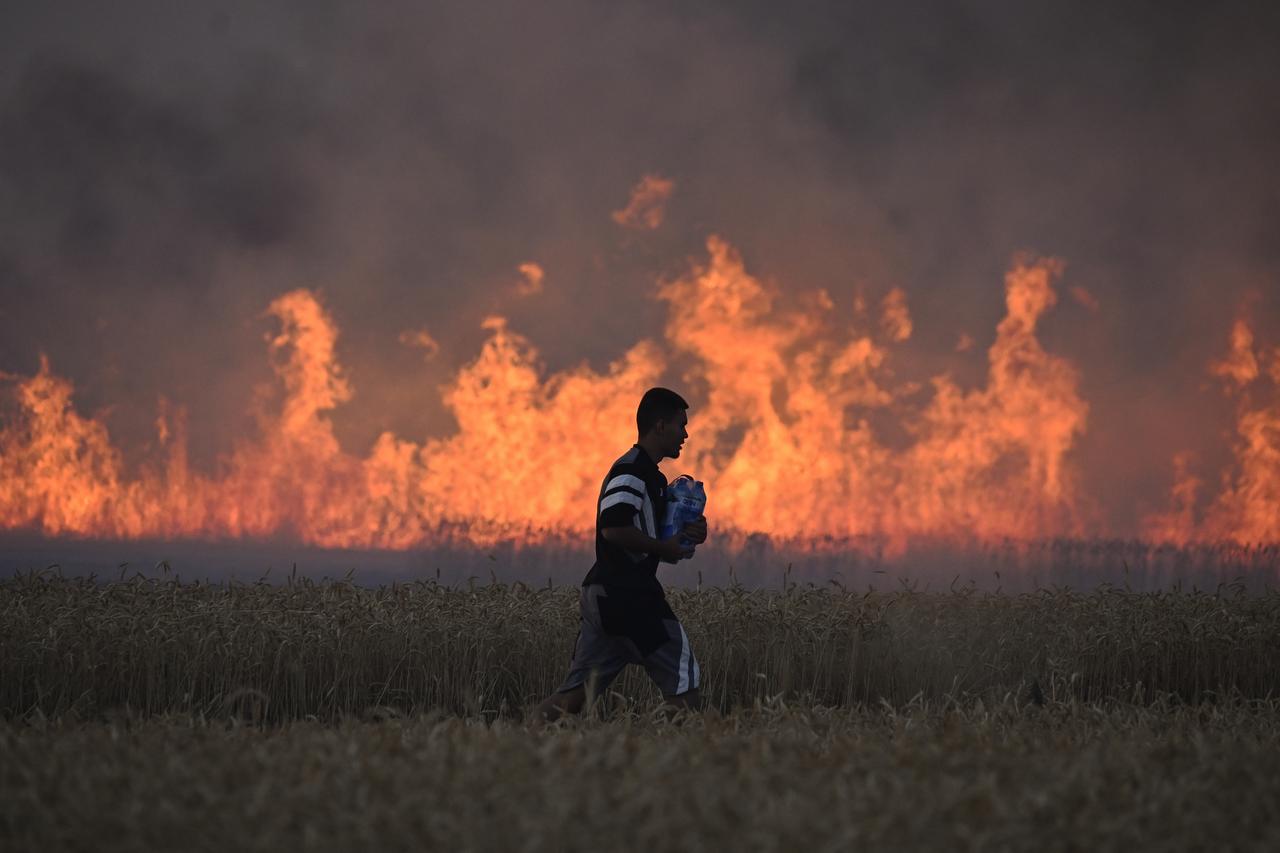
Over the weekend, wildfires broke out in Bulgaria and Greece, coinciding with Türkiye’s ongoing fire emergencies. A fire that started near Lesovo in Bulgaria reached Türkiye’s border, arriving at the fence near Uzunbayir village in Edirne’s Lalapasa district. In response, Türkiye deployed emergency teams to prevent the flames from crossing into its territory.
Smoke and ash carried by strong winds reached Edirne city, located 50 kilometers (30 miles) from the border, significantly reducing visibility.
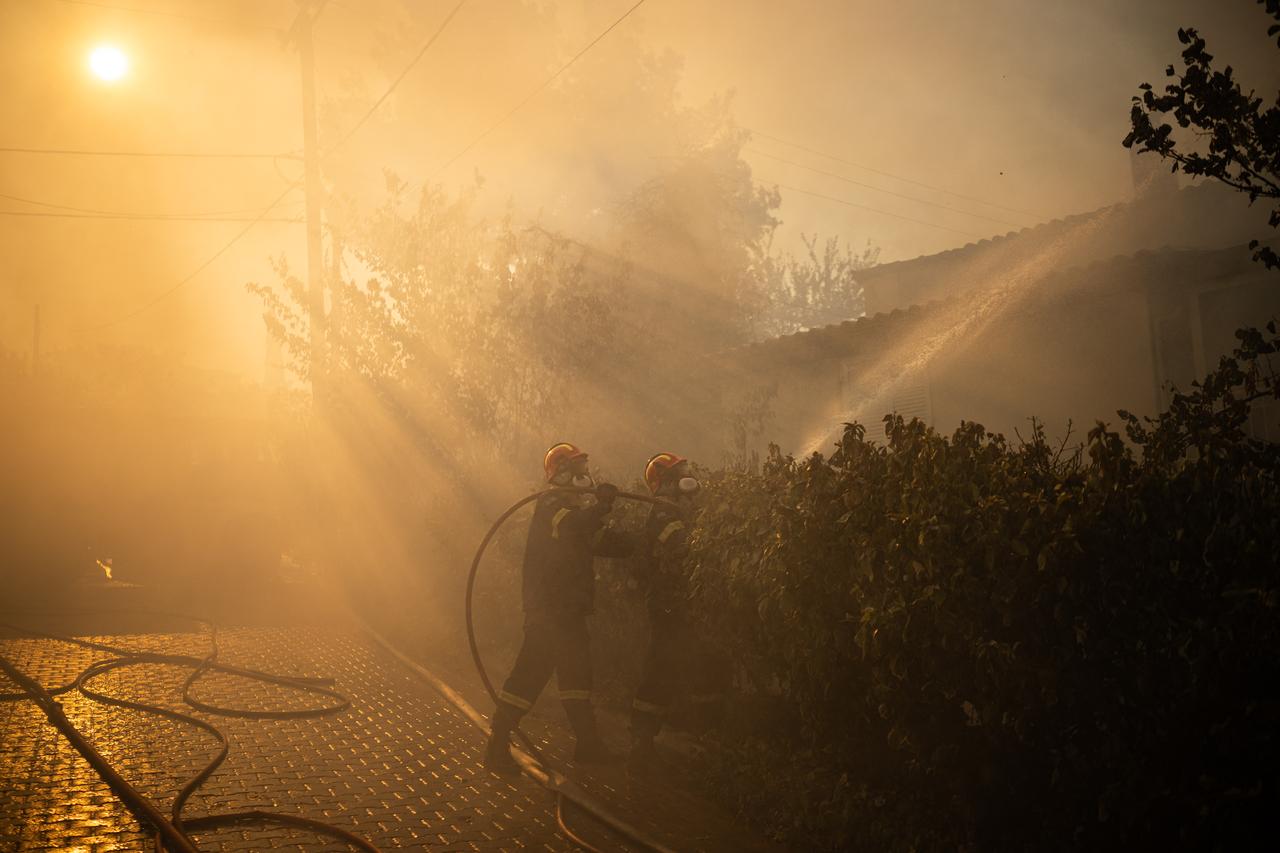
Greece saw soaring temperatures of up to 44 degrees Celsius (111.2 degrees Fahrenheit) on Sunday, as officials dealt with at least five major wildfires. The worst-hit area was north of Athens, where authorities issued evacuation orders. Fires also burned through the Peloponnese, and the islands of Evia, Kythera, and Crete.
Greek authorities received help from the European Union, requesting six additional firefighting aircraft. Italy sent two planes, while ground teams from the Czech Republic joined the efforts. In Attica, a fire that began in Afidnes spread to multiple suburbs before being partially contained.
On Evia island, another fire damaged power lines and left villages without electricity. Six firefighters were hospitalized after suffering burns and smoke inhalation.
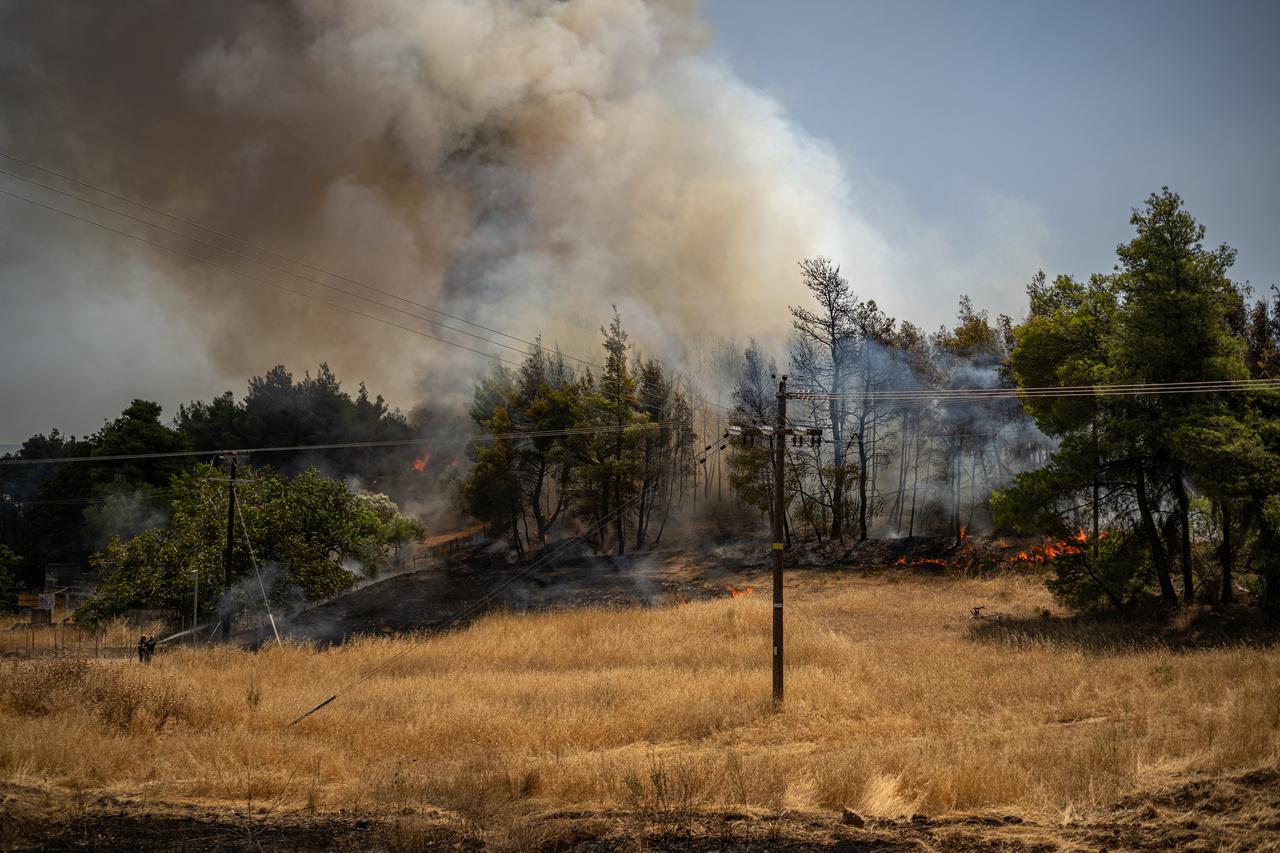
On Kythera island, a wildfire led to widespread evacuations. Coast guard vessels and private boats helped rescue 139 people from a beach and transported them to safety. In Messinia’s Trifylia area, a separate fire prompted further evacuations and triggered emergency alerts.
Meanwhile, in Crete, a blaze that began at two separate points destroyed homes in the Temenia region, raising concerns about fire expansion.
Greek meteorologists warned that high fire risk remains across several regions, including Rhodes, Crete, and the Ionian Islands. In recent weeks, wildfires have already burned thousands of hectares and displaced residents on islands such as Chios and Crete.